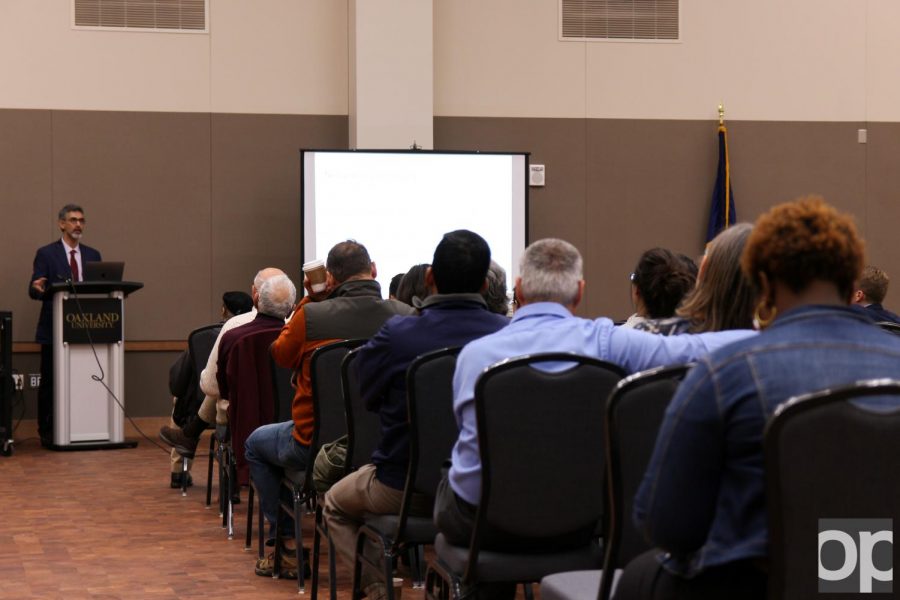Sheikh Lecture for Islamic Understanding
A. Kadir Yildirim gave a lecture called “Religion and Politics in the Middle East” in the Oakland Center on Oct. 11. The lecture is one of the three-part Sheikh lecture series.
Held in the new Founder’s Ballroom, the event had a great turnout of faculty and students as well as community members.
Paul Kubicek, department chair of political science at Oakland University, said that this lecture series “is to promote understanding of other faiths…[and] to combat Islamophobia.” He explained this is driven by current events and current interests in the Middle East.
Yildirim is a fellow for the Middle East Baker Institute for Public Policy at Rice University. He is originally from Turkey. He has written two books and published a variety of articles for publications like The Washington Post and The Huffington Post.
After some technical difficulties because of issues with the new projector system, the event began. Yildirim had several slides with graphs and charts, breaking down the research. The visuals proved helpful, as the lecture was intended to be very informative.
Yildirim discussed how the surveyed people in countries throughout the Middle East felt about matters of religion in regard to politics, leaders, personal lives, daily prayers and more. Though the samples mainly came from disproportionately educated, urban, prosperous males, the information is still important in understanding more about the region. It also conveyed how religious leaders are much more important than was previously assumed according to Yildirim.
It will nonetheless tell us important things about how religion becomes important in terms of influencing people’s decisions and views and perceptions of different kinds of factors,” Yildrim said of the findings.
“Further analysis into the data is going to tell us a lot about what we can and cannot say about these particular findings.”
The research project, started about a year and a half ago, was funded by the Luce Foundation. The survey ran online in 11 countries, with 14,500 respondents. Yildirim explained that it was at times difficult to run the research because of some of the country’s governments.
“We must step back and understand the religious landscape of the Middle East,” Yildrim said. He continued to explain that there is no clear religious authority, unlike other religions such as Catholicism.
After the presentation, audience members were invited to ask questions. Alexis Asaro, a freshman majoring in international relations, asked about expanding the research into other countries, such as those in Asia. She said she “always thought [the Middle East] was very interesting. There’s so much religion… [and] it was very interesting how it plays into culture.”
“We wanted to, essentially, figuratively draw a map of each country and how these different kinds of religious figures with different backgrounds sort of play out, sort of state religious authorities, Islamist actors, fundamentalists, Sufis and extremists,” Yildirim explained. “So we wanted to see…what the lay of the land was.”
Yildirim will be presenting the research in March at a conference in Washington, D.C. for policymakers and researchers.







